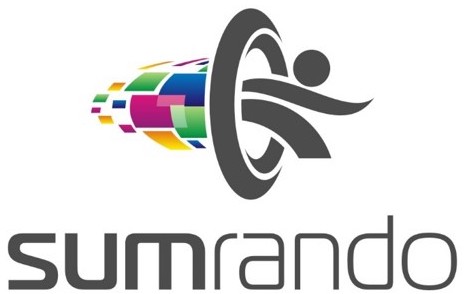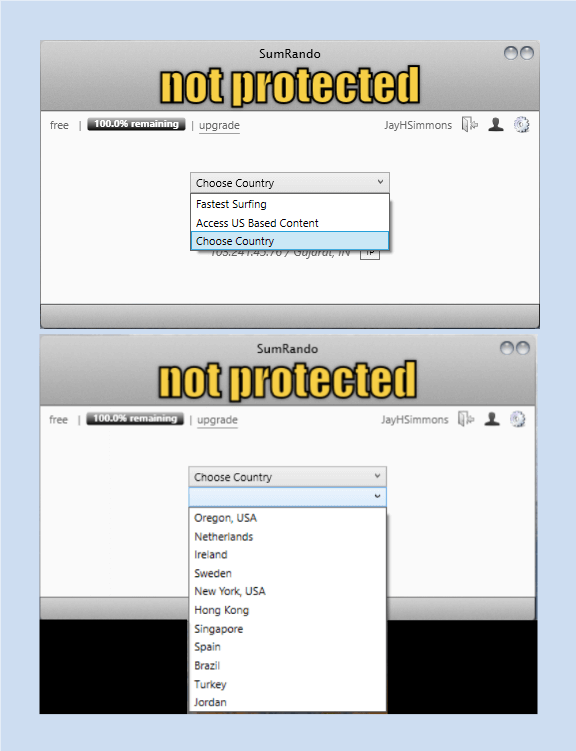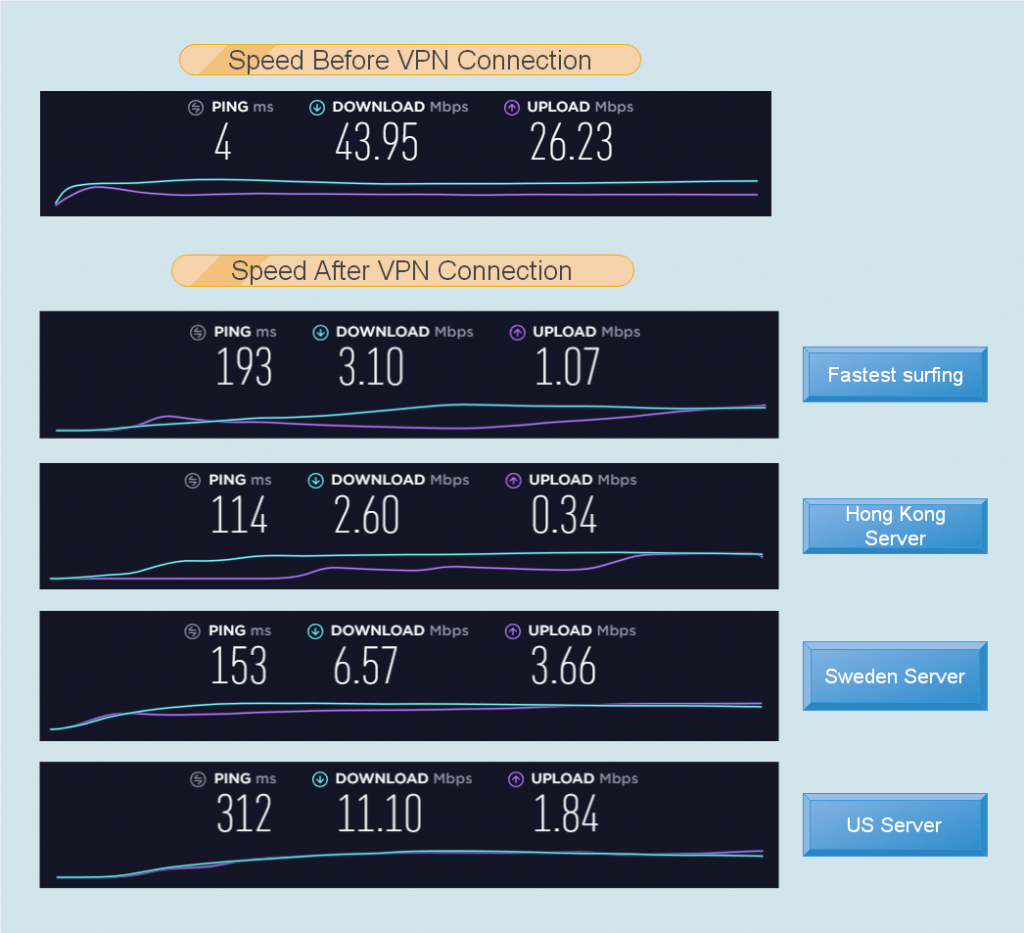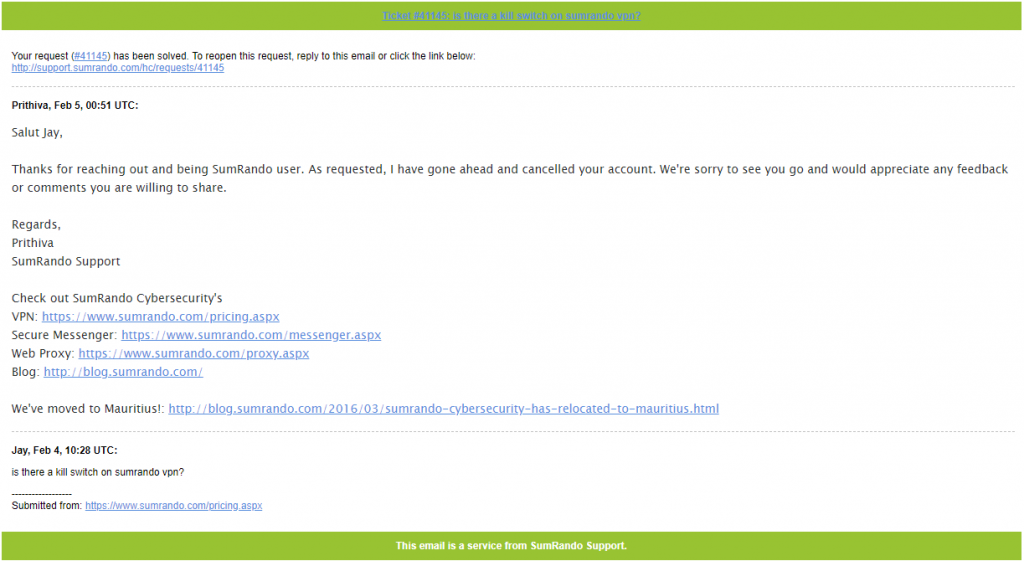Pros

Free Service: You can install the service for free and start using it without creating an account or providing personal information.
Favorable Jurisdiction: The company is based in Mauritius. The island nation is not among the 14-Eyes countries and aids individual privacy.
Cons
Poor Speed: The speeds on the service is not exciting at all. The service does not allow the user to make good use of his/her high-speed connection.
Missing Security Features: Kill-Switch, IP leak protection, and DNS leak protection are all missing on the client.
Overview

SumRando has the headquarter in the beautiful island nation of Mauritius. This is a workplace location which can invoke jealousy in a lot of people.
Mauritius is not among the 14-Eyes countries and seems to have some privacy-friendly rules as well. SumRando started in 2011, and it was based in South Africa at the beginning.
They are not very vocal when it comes to promoting the product. The website is not filled with features and tall claims about the service. We hardly remember any VPN service which did not promise great speeds on the website.
It will be interesting to find out the reason behind such a non-aggressive promotion of the service by the makers.
Are they already accepting that the service is not a great one? Are they just chilling out on the beautiful beaches, and not interested in enhancing the website or product or business? Or is there some other reason?
You might be able to guess the reason by the end of this review. We will asses the performance, features, speed, security, privacy, and everything that we can possible asses.
We will conduct a few tests and compare the service with the most prominent VPN services to gauge its excellence. The privacy, speed, and security on the service will be the focal point of this review.
The best VPN services maintain a great balance between these three, and you are about to find out how SumRando manages these areas together.
Servers

A server network is a primary requirement for a VPN service. The server network gives an idea about the popularity of the product.
The size and density of a server network are directly proportional to the better performance of the service. The proximity of the server from the user’s location decides the latency and the speed for the user.
Traffic congestion can also be easily mitigated by providing more servers in the network or by increasing the bandwidth capacity of the individual servers.
SumRando has got servers across ten countries of the world. However, they managed to cover a lot of continents even with such a smaller number of servers.
They have got servers in Asia, Africa, and the Middle East along with the usual Europe and America. They keep some of the servers reserved for the platinum users. Otherwise most of the server locations are accessible by the free users as well.
The size of this server network is not very impressive though. There is a high probability that the user will come across latency issues because of long distances from the server.
The distance from the servers is bound to have a negative impact on the speed on the network.
Server sorting was never supposed to be a concern for such a small server list. But the service provider could have added a few dedicated servers in the network.
In their defense, they have added an ‘Access US base content’ option for the users. It is a streaming server option and helps the user stream content with ease.
There is no information about P2P file sharing on the network. You need to go the ‘trial and error’ method to find out which server allows P2P file sharing.
They also provide a ‘Fastest surfing’ server option which is supposed to connect the user to the server which will give the fastest speed for the user’s location.
However, they need to make some improvements in the algorithm of this option. We connected to a few servers which gave better speeds and thus a better experience as well.
In our opinion, the service provider should focus on adding more server locations in the network.
Privacy Policy
Mauritius is not one of the 5-Eyes countries, and the local laws only help the service provider to maintain the privacy of the user on the service.
Privacy is the primary concern of most of the users who decide to use VPN services. There are all sorts of groups and organizations ranging from ISPs and government bodies to cybercriminals, who want to peek into what you are doing on the internet.
The VPN services masks all your online activity data from these groups, and it is only the VPN service which knows about your online activity.
Thus, it is of utmost importance that the VPN service has strict policies so that your data doesn’t reach into the wrong hands.
We went through the privacy policy of SumRando, and here are some facts from it.
They explicitly state that they do not monitor, store or process any of the user’s online activity.
They have also mentioned that they store information only about the volume of data used by the customer, and the timestamps related to the connection.
However, they have not discussed anything about the logging of the IP address of the user. Given the fact that they mentioned the logging of bandwidth usage and data volume only, we are assuming that they do not store the IP address of the user.
Just like most of the services, they also store the username, email address, information related to the payment methods, etc. This category of information is necessary for any organization to function properly.
They have not discussed anything about cookie data or analytics services on the website as well.
We found the privacy policy of SumRando transparent enough, but they could have easily elaborated it a bit more.
They just skipped a few sections which relate to the privacy of the user. The service provider needs to discuss all the topics which can affect the privacy of the user and give as much information to the user as possible.
Connection Time Analysis
| Trial No. | Time to establish a connection (seconds) |
|---|---|
| 1 | 12.72 |
| 2 | 13.61 |
| 3 | 22.24 |
| 4 | 16.34 |
| 5 | 16.26 |
| 6 | 19.51 |
| 7 | 14.19 |
| 8 | 16.02 |
| 9 | 15.25 |
| 10 | 12.1 |
| Avg. Time In Seconds | 15.824 |
There is not much emphasis on connection time while gauging the performance of a VPN service. But, connection time analysis gives the user a lot of cues about the swiftness of the client.
We did the connection time analysis for SumRando, and it took around 16 seconds on average to establish a connection with the network.
There are VPN services which take less than three seconds on an average to connect to the network. SumRando needs to improve a lot when compared to such services.
In our opinion, the connection time should remain less than 10 seconds on an average for better user experience. The current connection time suggests that SumRando has not got a very fast client.
One more thing worth noticing in this analysis is that the connection time kept fluctuating throughout the test. The connection attempt even failed a few times, and we had to restart the client to be able to connect to the VPN again.
These instances question the reliability of the client, and the user should remain alert for a few surprises while using the service.
Speed Test

Internet speeds have become a thing to brag about these days. And no one likes to lose their bragging rights.
People want to make most of their high-speed internet connections, and many online activities demand high-speed internet connections as well. Some of these activities are streaming and online gaming.
We got the trial version of SumRando and did the speed test. First, we connected to the ‘Fastest country’ server option. It gave only 7.05% of the initial speed.
We understand that we opted for the trial version, and there is a possibility of poor performance because of high internet traffic on the server. But we also know that the chances of a giant leap from the current speed to some outstanding speed are very slim.
The trial version is meant for the customers to assess the situation on the service, and then decide if the user wants to subscribe to the service or not.
Such poor speeds on the trial version servers don’t seem to do much good to the service when it comes to motivating the user to subscribe to the product.
We did the speed test on some other servers on the network as well. It turned out that the client’s automatic server selection did not work correctly.
We obtained some higher speeds, but they were still not impressive at all. We got 5.91%, 14.94%, and 25.25% of the initial rate on Hong Kong, Sweden, and the US servers.
The speed on the service is abysmal, and the service provider will have a tough time persuading users to choose SumRando with such speeds.
Security
We mentioned at the beginning of the review that privacy, speed, and security would be the core sections of this review. We observed satisfactory privacy and poor speeds until now.
So, it won’t be wrong to say that this section will determine if the service is poor or is it a good one with a few anomalies.
We don’t think that there is any need to emphasize the importance of security on a VPN service.
You must also know that new ways are being devised every day to compromise the data of individuals and organizations. This calls for a need of strengthened security measures by the service providers.
SumRando provides AES 128-bit encryption for securing the data. Most of the VPN services employ AES 256-bit encryption, which is the most robust encryption available and virtually impenetrable.
The direct comparison of SumRando with such services might make it look weaker in the encryption department. But, AES 128-bit encryption is also no joke, and it is also next to impossible to decrypt it using brute force.
We always prefer AES 128-bit over AES 256-bit, and the reason is that 128-bit encryption is light and fast. It utilizes less computational abilities of the device, and therefore you get better performance when using this encryption.
To some people, this extra speed might seem like a bargain for weaker security, but it is not the case at all. AES 128-bit is a secure enough encryption, and faster than 256-bit encryption as well.
For protocol, SumRando provides only one option in the form of OpenVPN. It is the best protocol available for use in the VPN services and has the optimal equation of speed and security.
However, it is always better to have more options. The service provider should provide more protocol options to the user.
The encryption and the protocol on the service are among the finest measures available, but there seems to be a dearth of additional security features on the service.
We found no trace of a kill-switch on the client, and our curiosity to know if the client has this feature or not, somehow led to the deletion of our user account on the service.
You will get to all about this funny and weird story later in the customer support section of the review.
There is also no mention of IP leak protection and DNS leak protection on the client or the website. The leak tests confirmed that the service lacks IP leak protection as well as DNS leak protection.
Everything was going well in this section until we found out that there are no added security features on the service apart from the encryption and protocol.
There will always be a chink in the armor until the service provider gets all the necessary security features on the client.
User Interface and Experience
The clients are supposed to provide a platform to the user to connect to the VPN and switch between the servers. However, the service providers use the client to enhance the service as well.
They provide a lot of functional options to the user which augments the user experience. The service providers add a lot of customizable options as well so that the user can shape the client according to his/her purpose and preference.
Then there are a few service providers who don’t want to bother spending resources on a client and make use of already available GUIs of various protocols. Some of these services even manage to stay afloat because of superior performance.
However, the makers of SumRando don’t fall in either of the categories mentioned above. They provided a client, but with no functionality at all :(.
All it does is that it allows the user to switch between the servers and connect to the network.
There is a settings icon on the client though. You can even click on it, and there is one customization option in it as well. It allows the user to remove the ugly and useless banner from the top of the screen.
This banner comes with the client, and it is totally useless. It can change the color to tell you if you are connected to the VPN or not. But the annoying pop-ups on the side of the screen also do the same job.
These pop-ups are also a gift from the service provider.
The user interface was more of an annoyance rather than being a useful tool which would make the whole experience of connecting to the VPN more pleasant.
There is so much that can be done to improve the user interface and make it a tad bit useful for the customers.
Platforms and Devices
The platform support is not exciting as well. You can download the client for Windows and Android devices only.
The service cannot be used on any other platform. So, all you high-priced shiny, blingy devices with a bit-off apple at the back of them, are not worthy of this service.
Same goes for Smart TVs, gaming consoles, routers, etc.
We are not sure if the service provider realizes what portion of the market is left untapped when the client is available only for Windows and Android devices.
Customer Support

This one is going to be interesting!
There are two modes of customer support from SumRando. First is the support section on the website. It includes the FAQ section, the policy statements, and almost everything on the website.
It depends upon the user that how much information can he/she extract from the website.
The other mode is to leave a message to them. You expect to get a proper solution to the problem or an appropriate answer to the query.
We also wanted to know if there is a built-in kill switch on the client or not. We thought it would be convenient to ask it directly from the service. We left a message asking about the same.
You will not believe what we got in the reply. The support representative sent us a mail which said,
“Salut Jay,
Thanks for reaching out and being SumRando user. As requested, I have gone ahead and cancelled your account. We’re sorry to see you go and would appreciate any feedback or comments you are willing to share.
Regards,
Prithiva
SumRando Support”
These people canceled our account. We thought this is atrocious.
The whole experience was so annoying and frustrating that we did not even bother to reach back to them. In their favor, this could have all been a big understanding.
But we believe that the support representative was so oblivious of what a kill switch is that he/she ended up deleting our account.
Whatever the reason may be, such kind of service is just unacceptable.
Conclusion
We think you already know our final verdict on the service.
The only positive thing about it is that it is free of cost with limited data transfer and anonymous usage.
The privacy seemed satisfactory, but the service provider left a few things unattended such as the IP address.
The lack of additional security features, small server network, and slow speeds are tough to ignore.
However, sections such as privacy and security can be taken care with only a few efforts from the service provider.
